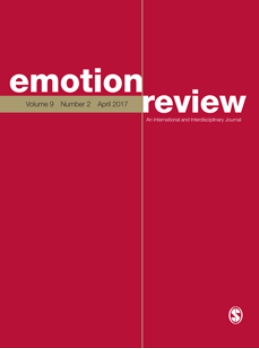论内塔和金(Neta and Kim)关于 "惊喜总是有价值的 "论点的无效性
IF 3.4
2区 心理学
Q1 PSYCHOLOGY, MULTIDISCIPLINARY
引用次数: 0
摘要
奥托尼(Ortony)在最近的一篇文章中对基本情感理论提出了挑战,他认为无情感惊喜的存在意味着惊喜不一定是有情感的,因此可以说不是一种情感。作为回应,Neta 和 Kim 在一篇文章中指出,惊讶总是有情感的,因此是一种情感,表面上的无情感惊讶实际上是意外的认知状态,而不是惊讶。我们认为,Neta 和 Kim 的立场是建立在对词语用法的特异性规定之上的。我们进一步指出,通过引用带有情感的惊讶的例子来否定无情感惊讶与惊讶是否总是带有情感没有关系,并提出当惊讶看起来带有情感时,体验到的情感的位置是一种共存的情感。本文章由计算机程序翻译,如有差异,请以英文原文为准。
On the Invalidity of Neta and Kim's Argument That Surprise is Always Valenced
In a challenge to Basic Emotion theories, Ortony suggested in a recent article that the existence of affect-free surprise means that surprise is not necessarily valenced and therefore arguably not an emotion. In an article in response, Neta and Kim argued that surprise is always valenced and therefore is an emotion, with apparent cases of affect-free surprise actually being cases of the cognitive state of unexpectedness rather than surprise. We view Neta and Kim's position as resting on an idiosyncratic stipulation of word usage. We further suggest that rejecting affect-free surprise by appealing to examples of affect-laden surprise has no bearing on whether surprise is always valenced, and propose that when surprise appears to be affect-laden the locus of the experienced valence is a co-occurring emotion.
求助全文
通过发布文献求助,成功后即可免费获取论文全文。
去求助
来源期刊

Emotion Review
PSYCHOLOGY, MULTIDISCIPLINARY-
CiteScore
6.60
自引率
3.70%
发文量
34
期刊介绍:
Emotion Review is a fully peer reviewed scholarly journal. It adheres to a blinded peer review process in which the reviewer"s name is routinely withheld from the author unless the reviewer requests a preference for their identity to be revealed. All manuscripts are reviewed initially by the Editors and only those papers that meet the scientific and editorial standards of the journal, and fit within the aims and scope of the journal, will be sent for outside review. Emotion Review will focus on ideas about emotion, with "emotion" broadly defined. The Review will publish articles presenting new theories, offering conceptual analyses, reviewing the literature, and debating and critiquing conceptual issues.
 求助内容:
求助内容: 应助结果提醒方式:
应助结果提醒方式:


